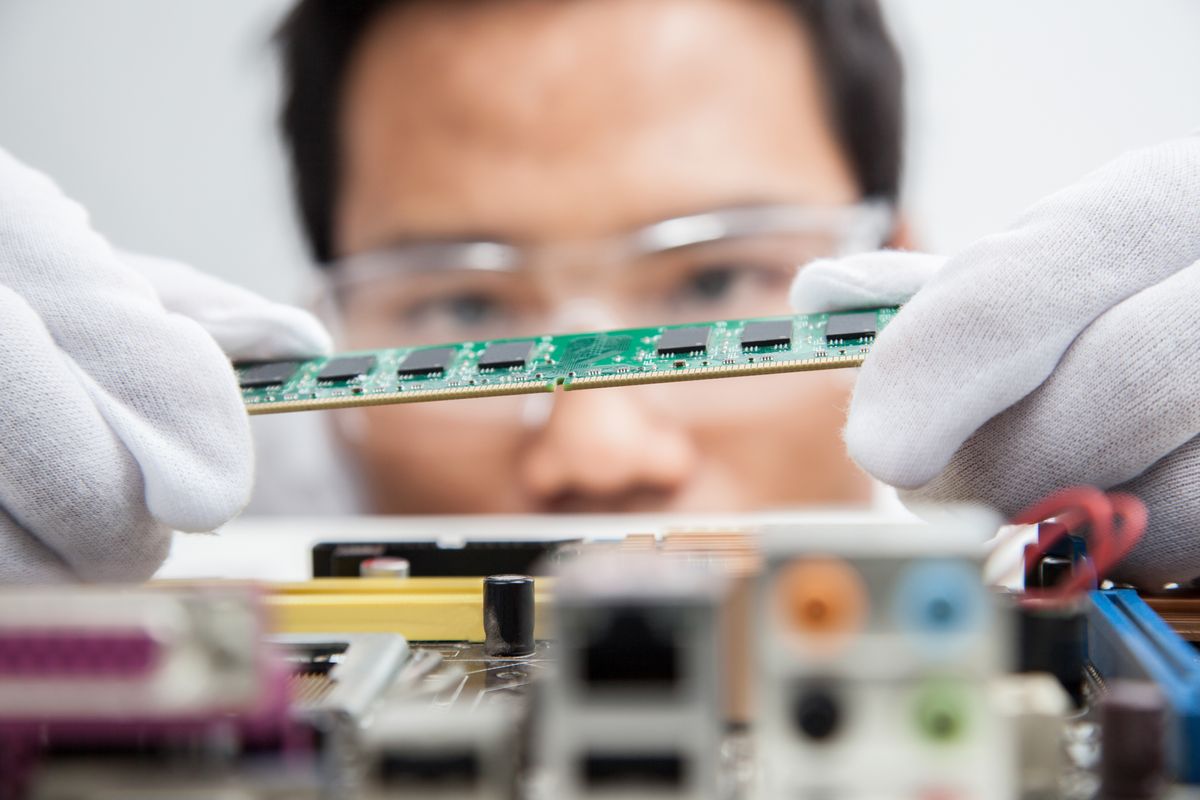Taiwan is the unmatched global leader in semiconductors. It controls more than 80% of the market for chips with the smallest and most efficient circuits. Benefiting from the supply chain crisis and geopolitical competition generated during the pandemic, Taiwanese semiconductor chip or Integrated Circuit (IC) suppliers have registered record growth in output this year.
Chip output out of Taiwan in 2021 is expected to increase by 25.9% to $147 bn, as per new estimates by government think tank Industry, Science and Technology International Strategy Center. By 2022, the output is likely to expand to $162 bn.
This record growth comes at a time when a persistent shortage of key semiconductors took its toll on a vast array of sectors. Over the past year, the sudden shortfalls in chips and rise in demand for consumer electronics resulted in supply chain disruptions for many industries like auto, smartphones, tablets and PCs.
Taiwan developing a thriving chip eco-system
Taiwan’s semiconductor industry has been booming on the back of decades of government support, intentional policy design, efficient supply chain management and private sector entrepreneurship.
“Taiwan’s leadership position in the semiconductor manufacturing industry has also created other industry clusters, including chip packaging companies as well as companies that supply substrates, lead frames and chemicals,” a market insight by Eastspring Investments states.
Taiwan Semiconductor Manufacturing Company (TSMC) – the world’s biggest contract chipmaker – was responsible for 24% of the global semiconductor output in 2020, up from 21% in 2019. When it comes to most advanced chips, TSMC is responsible for 92% of production while Samsung from South Korea is responsible for the other 8%, according to data by Capital Economics.
What additionally benefits Taiwan’s chip industry, as per Eastspring, is being in the same geographical location as it’s key customers and suppliers. “This make supply chain management more efficient.”
Taiwan’s ASE Technology Holding, which engages in the provision of semiconductor manufacturing services, has become the world’s top chip assembler. Meanwhile, Taiwanese fabless semiconductor company MediaTek has become the world’s biggest smartphone chip supplier this year.
Challenges ahead for IC industry
Taiwan’s dominant position in the supply for critical semiconductor business has, however, come under pressure that could backfire at the country’s top chip suppliers. While the top producers continue to expand production and invest in new capacities, they are still struggling to keep up with surging demand.
And the ongoing chip shortage is expected to continue into 2022 by most analysts. The chip shortage has made TSMC raise prices by as much as 20% for less advanced chips and roughly 10% for most advanced chips, ultimately making electronics more costly.
To ramp up production, TSMC has committed to investing $100 bn over three years. The giant among chipmakers recently announced its expansion plans and said it will invest roughly $9 bn in a new factory in the southern city of Kaohsiung. Apart from this, the Taiwanese tech company is also building a plant in Japan worth $7 bn with Sony Semiconductor Solutions Corporation. The tech giant is also building a $12 bn worth new fabrication plant in Arizona and is said to be considering building more chip plants in the US. Reportedly, TSMC is also considering Germany as a potential chip plant location in Europe.
To boost chip production, Taiwan is considering semiconductor cooperation with other nations. The Ministry of Economic Affairs is encouraging Japanese suppliers to invest in the production of gases and liquid materials for the semiconductor industry in Taiwan. The government is also looking at cooperating with three Eastern European countries like Slovakia, the Czech Republic and Lithuania.
Potential risks for Taiwan’s IC industry
Given Taiwan’s dominance of the global semiconductor value chain, any distruption could hurt the global tech industry. This has led other countries, e.g. Japan and the US, to increase their self-reliance and accelerate the development of their own chip industries.
“A global effort is coalescing around the need to move semiconductor production out of Taiwan. This cannot be good for Taiwan’s economy in the long run,” Walter Lohman, Director at The Heritage Foundation’s Asian Studies Center said in a recent note.
What prompts countries to take these steps are concerns about geopolitical risks in the region. According to Taiwan’s defence minister, tensions with China are at their worst in 40 years, warning of the risk of an accidental strike.
“The idea that China could shut down large swaths of the global economy with an attack on the centre of 60% of the world’s microchip manufacturing, including 92% of the world’s most advanced chips, has captured the imagination of foreign policy types,” Lohman said.
“However, at the end of the day, the threat to the global supply of semiconductors is only as great as the general threat of an invasion. And at that point, we’ve got bigger problems than the price of electronics.”










 Australia
Australia China
China India
India Indonesia
Indonesia Japan
Japan Malaysia
Malaysia Philippines
Philippines Singapore
Singapore South Korea
South Korea Taiwan
Taiwan Thailand
Thailand Vietnam
Vietnam
 Germany
Germany Hong Kong
Hong Kong USA
USA Switzerland
Switzerland Singapore
Singapore








